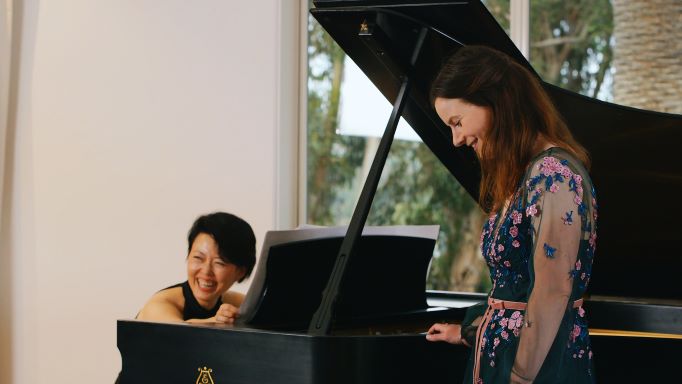This is the English translation of my Japanese article for Nikkan San, a part of my bi-weekly column, “The Way of the Pianist” to be published on May 21st, 2023.
“[L]acking social connection can increase the risk for premature death as much as smoking up to 15 cigarettes a day.” This shocking statement was a part of the U.S. Surgeon General’s Advisory Report, “Our Epidemic of Loneliness and Isolation,” published at the beginning of this month. According to it, “poor or insufficient social connection is associated with increased risk of disease, including a 29% increased risk of heart disease and a 32% increased risk of stroke. Furthermore, it is associated with increased risk for anxiety, depression, and dementia. Additionally, the lack of social connection may increase susceptibility to viruses and respiratory illness” (P.8)
The report declares social connection to be “a fundamental human need, as essential to survival as food, water, and shelter.” (P.9) However, the average time spent alone by Americans “increased from 2003 (285-minutes/day, 142.5-hours/month) to 2019 (309-minutes/day, 154.5-hours/month) and continued
to increase in 2020 (333-minutes/day, 166.5-hours/month).” (P. 13) The pandemic and its social distancing measures from 2020 on did not help these numbers, but IT and social media are exasperating the issue. The decline of social time spent with friends in-person has decreased from 30 hours per month to 10 hours per month between 2003 and 2020, and this tendency is the worst between the age 14-25. (P. 13)
We are designed and wired to operate as social animals, by cohabiting, cooperating, and commiserating – this is my recurrent thought as I conduct my research on the power of music. There are many social practices that are in place to meet our inherent social needs: prescribed greetings, festivals, feasts, cooperative projects… Music is one of these social mechanisms.
What intrigued me about this report is the distinction it made between the ill-effects of isolation and loneliness, as opposed to more neutral solitude. (P. 7) True that. I bet that most readers have the experience of feeling lonely in the middle of a crowd, or a big city. “Polls conducted in 1972 showed that roughly 45% of Americans felt they could reliably trust other Americans; however, that proportion shrank to roughly 30% in 2016.” (P. 13) Living amongst those you do not trust will surely aggravate your feelings of loneliness and isolation.
However, there are actions that overrides any differences that two people can have to bring about a strong sense of empathy and identification with each other. Sharing food. Beating the odds against an impossible challenge by joint efforts. Laughing together. Amongst these, music’s power is especially noteworthy. Music reminds everyone that what we share is greater than our differences. This is not just an assertion of musicians and music lovers. These days, neuroscientists, archaeologists, anthropologists, social activists…many people with various expertise seem to be promoting the power of music.
So, please. Put your smartphones and ear phones away. Go outside, and greet others. Move to the rhythm of the same music with strangers. Join a choir. Come to concerts.
Music heals and unites us.
